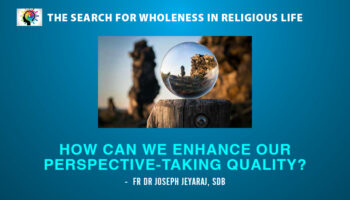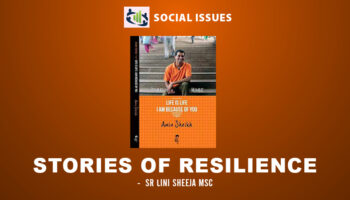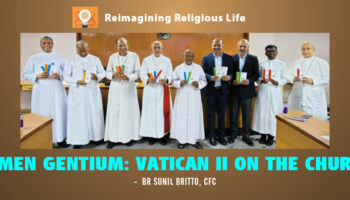27 January: International Holocaust Remembrance Day
The Day commemorates the tragedy of the Holocaust that occurred during the Second World War: the genocide that resulted in the death of an estimated 6 million Jewish people, 5 million Slavs, 3 million ethnic Poles, 200,000 Romani people, 250,000 mentally and physically disabled people, and 9,000 homosexual men by the Nazi regime and its collaborators.
Auschwitz concentration camp was a network of concentration and extermination camps built and operated by Nazi Germany in occupied Poland during World War II. It consisted of Auschwitz I (the original concentration camp), Auschwitz II–Birkenau (a combined concentration/extermination camp), Auschwitz III–at Monowitz (a labour camp to staff an IG Farben chemicals factory), and 45 satellite camps.
Auschwitz I was first constructed to hold Polish political prisoners, who began to arrive in May 1940. The first extermination of prisoners took place in September 1941. Auschwitz II–Birkenau went on to become a major site of the Nazis’ ‘Final Solution to the Jewish Question’ during the Holocaust. From early 1942 until late 1944, transport trains delivered Jews to the camp’s gas chambers from all over German-occupied Europe, where they were killed en masse with the cyanide-based poison Zyklon B, originally developed to be used as a pesticide. An estimated 1.3 million people were sent to the camp. Others deported to Auschwitz included 150,000 Poles, 23,000 Romani and Sinti, 15,000 Soviet prisoners of war, 400 Jehovah’s Witnesses, and tens of thousands of others of diverse nationalities, including an unknown number of homosexuals. Many of those not killed in the gas chambers died of starvation, forced labour, infectious diseases, individual executions, and medical experiments.
As Soviet troops approached Auschwitz in January 1945, most of its population was sent west on a death march. The prisoners remaining at the camp were liberated on 27 January 1945, a day now commemorated as International Holocaust Remembrance Day.
In the following decades, survivors such as Primo Levi, Viktor Frankl, and Elie Wiesel wrote memoirs of their experiences in Auschwitz, and the camp became a dominant symbol of the Holocaust. In 1947 Poland founded the Auschwitz-Birkenau State Museum on the site of Auschwitz I and II, and in 1979 it was named a World Heritage Site by UNESCO.
Every member nation of the U.N. honours the memory of Holocaust victims. We must go beyond remembrance, and make sure that new generations know this history and apply the lessons of the Holocaust to today’s world.
It rejects any denial of the Holocaust as an event and condemns all manifestations of religious intolerance, incitement, harassment or violence against persons or communities based on ethnic origin or religious belief.
It is a day on which we must reassert our commitment to human rights and do our utmost so that all peoples may enjoy the protection and rights.
We also focus on the disabled community that was one of the many victim groups of the Nazi regime.
The day is celebrated with exhibitions on the Holocaust—films, photo-albums, autobiographies, diaries and memoirs of survivors to give people a first-hand experience of what it must have been like.
There is a quote attributed to Stalin who ordered the death of several million citizens of the USSR: “One death is a tragedy; a million deaths is a statistic.” So true, isn’t it? When someone dear to us dies, it is a personal tragedy for us. But when we read about hundreds of people who die in a natural disaster or war, or thousands killed in battles or ethnic fights, this information is merely a number for us, right?
Another sad fact of human life: We do not learn from history. There are persons and groups that promote the kind of ethnic and religious hatred that the Nazis promoted. They do not seem to see that it is not only inhumanly cruel, but it is also self-destructive. Germany nearly destroyed itself through the madness and mayhem of the Nazi rule. Germans were so ashamed of this part of their history that they would not teach it in schools; they did not want their children to know what they had done during the Nazi rule. Germany also became the most hated country after the war. It took several decades for them to rise from ashes, with gigantic US aid and help from elsewhere. German also went out of its way, once it was financially strong again, to regain the good will of people elsewhere through foreign aid.
Sr Esme Da Cunha FDCC
To subscribe to the magazine, click Subscribe





